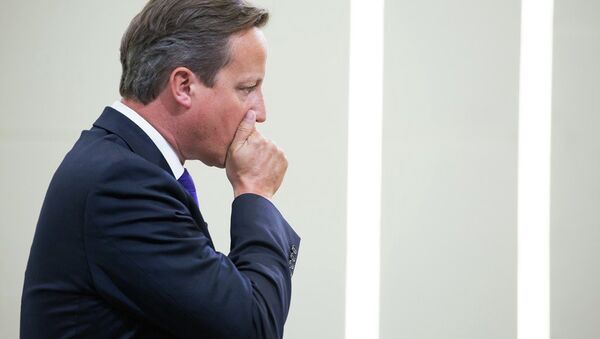LONDON (Sputnik) — Earlier in the day, Cameron delivered a speech in Birmingham on tackling extremism. He focused his speech on the role of extremist ideology, describing the problem as "struggle of our generation."
"The oversimplification of the drivers of radicalization bares risks of alienation of important groups of British Muslims, assuming that ideology is the main driver ignores a multitude of factors that leads individuals towards violent extremism," Fiyaz Mughal, the founder of Faith Matters said.
The other Muslim opinion leaders questioned by Sputnik expressed concerns that the tendency to oversimplify and overgeneralize would continue throughout the counterterrorism strategy due to be revealed in full in the fall.
Shuja Shafi, Secretary General of the UK Muslim Council expressed concerns that the new plan would label all Muslim activists as extremists "even though we respect and celebrate the rule of law, democracy and the rights for all."
Mohammed Shafiq, head of the Ramadhan Foundation, criticized Cameron for failing to engage in debate with the country’s Muslim community while working on the counter-terrorism plan.
UK Scotland Yard figures estimate at least 700 British citizens have gone to Iraq and Syria to fight alongside jihadists, including the Islamic State terrorist group. Britain's intelligence services suggest the actual number may be three times higher. Many of those trained in the Middle East may return home to commit terrorist attacks on the British soil, the Scotland Yard has warned.


